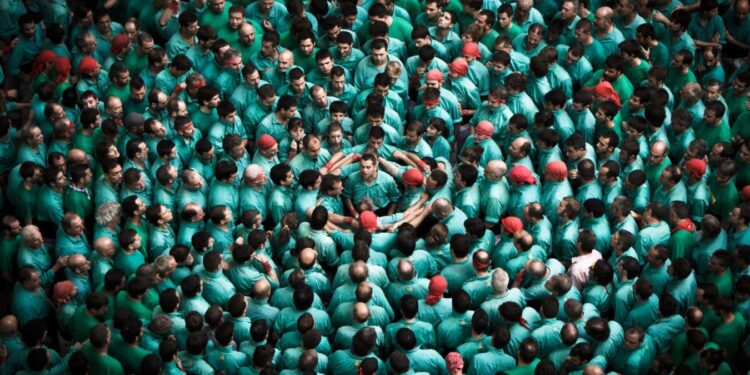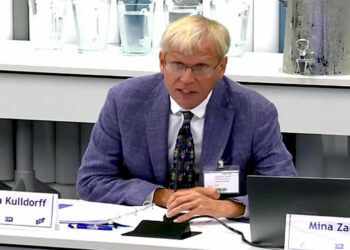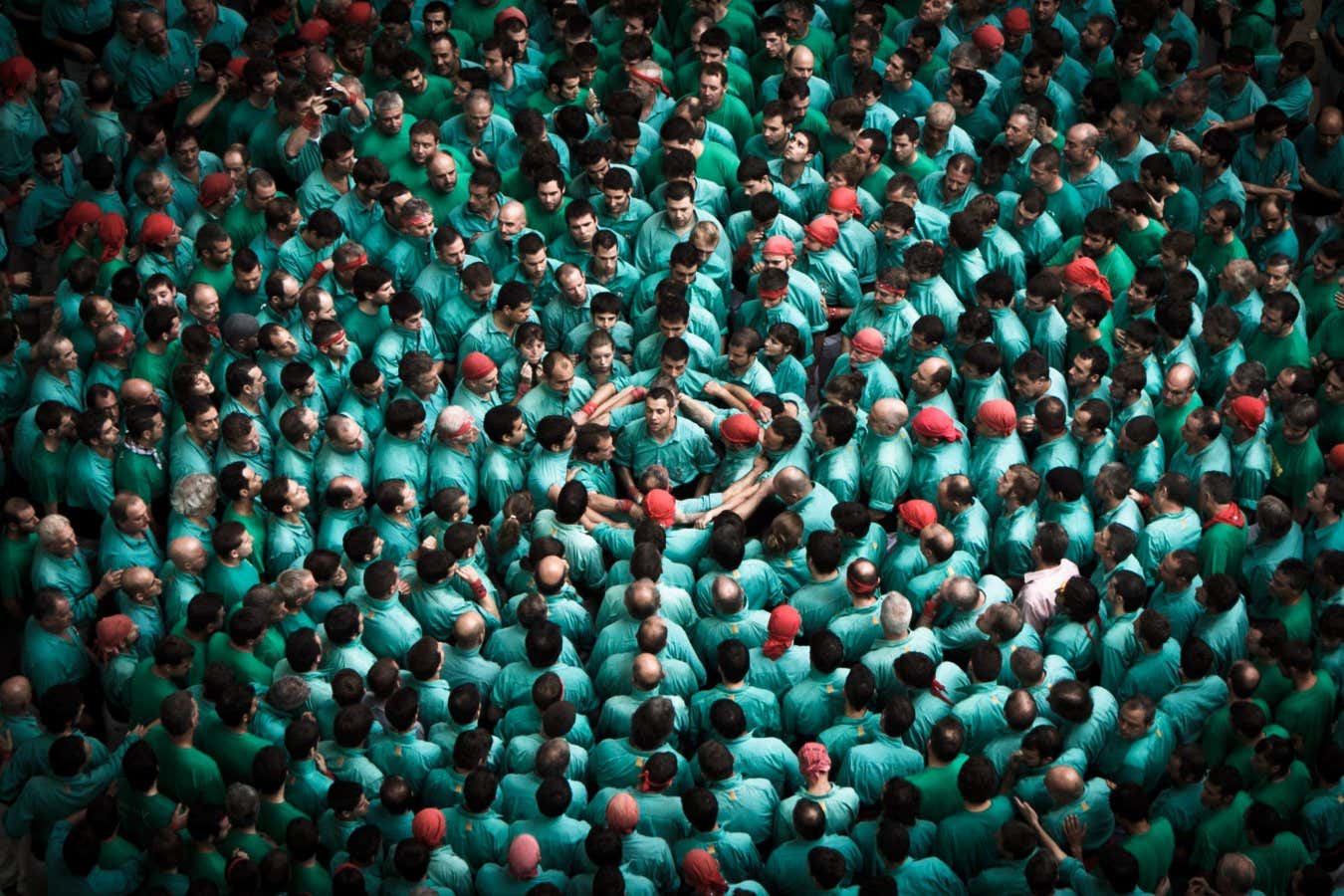
Nearly 2 million years ago, one of our hominin ancestors developed bone cancer in their foot. The fate of this individual is unknown, but their fossilised remains leave no doubt that cancer has been a part of our story for a very long time. It is also clear that, when threatened by our own normally cooperative cells turning against us, we evolved an immune system to help us identify and deal with the enemy within.
But treacherous cancer cells weren’t the only internal threat our ancestors faced. As hypersocial beings, their survival was also jeopardised by selfish individuals attempting to subvert the group – and capable of unravelling society, just as a cancer eventually kills its host. I am interested in understanding how we adapted to this threat. At the heart of the story is this question: is human nature selfish or altruistic, competitive or cooperative? Are we essentially cancers, tamed by culture, or more like healthy cells in the human body, working together for mutual success?
People have debated this for centuries and continue to do so, citing research in primatology, anthropology, psychology and economics to defend their points. The answer has profound implications for how we aim to structure society. If we are born altruists, then institutions and hierarchies are unnecessary. But if selfishness prevails, strong control is essential. To me, both extremes are unconvincing. To understand why, we must appreciate the circumstances under which humanity has evolved. Determining how our ancestors confronted brutish selfishness doesn’t just tell us about our own social past – it can also help us inoculate today’s societies against the threat from within.
Look at the animals to which we are most closely related and you see that each species has its own distinct set of social structures. Among gorillas, for example, groups of unmated males are typically led by aggressive alpha males. Mated gorillas sometimes live in groups of males and females, but more often it is the stereotypical silverback with a harem of females – a group that has its own hierarchy. Chimpanzees and bonobos also display dominance hierarchies, with a lot of emphasis placed on female social rank, particularly among bonobos. Despite the wide variation in sociality among these species, one thing is consistent: where there is social rank, aggressive dominance is the winning attribute. If an alpha can successfully defend resources, whether territory, food or mates, it can dominate a primate society. Access to more resources translates into having more surviving offspring than others, which is the only measure of success for evolution by natural selection.
Human self-domestication
Among our own ancestors – members of the genus Homo – the story is different. Research in anthropology and primatology suggests that, as early people evolved more complex social structures, they did something unseen in other primates: they domesticated themselves. Once they had the cognitive sophistication necessary to create weapons, along with the intelligence required to form alliances, they could fight the large, angry dominants that ruled over their social groups. The primatologist Richard Wrangham at Harvard University argues that this profoundly shaped human society because, along with eliminating the alphas, our ancestors also selected against the human trait of aggression. As a result, humans became more cooperative, and their societies became more egalitarian.
But if that is the case, how do we explain the undeniable and growing inequality in today’s societies, where huge amounts of power and money are concentrated among a small number of people, with the problem particularly pronounced in major economies such as the US, the UK and China? Some researchers argue that humans are not egalitarian by nature, but that living in small, close-knit groups of hunter-gatherers – as people did before the dawn of agriculture – suppressed our tendencies to form dominance-based hierarchies. They see a U-shaped curve of human egalitarianism. The point we started from – which looked a lot like the social structures we see in other great apes – is where we have ended up again, with the middle of the U showing a brief flirtation with social equality.
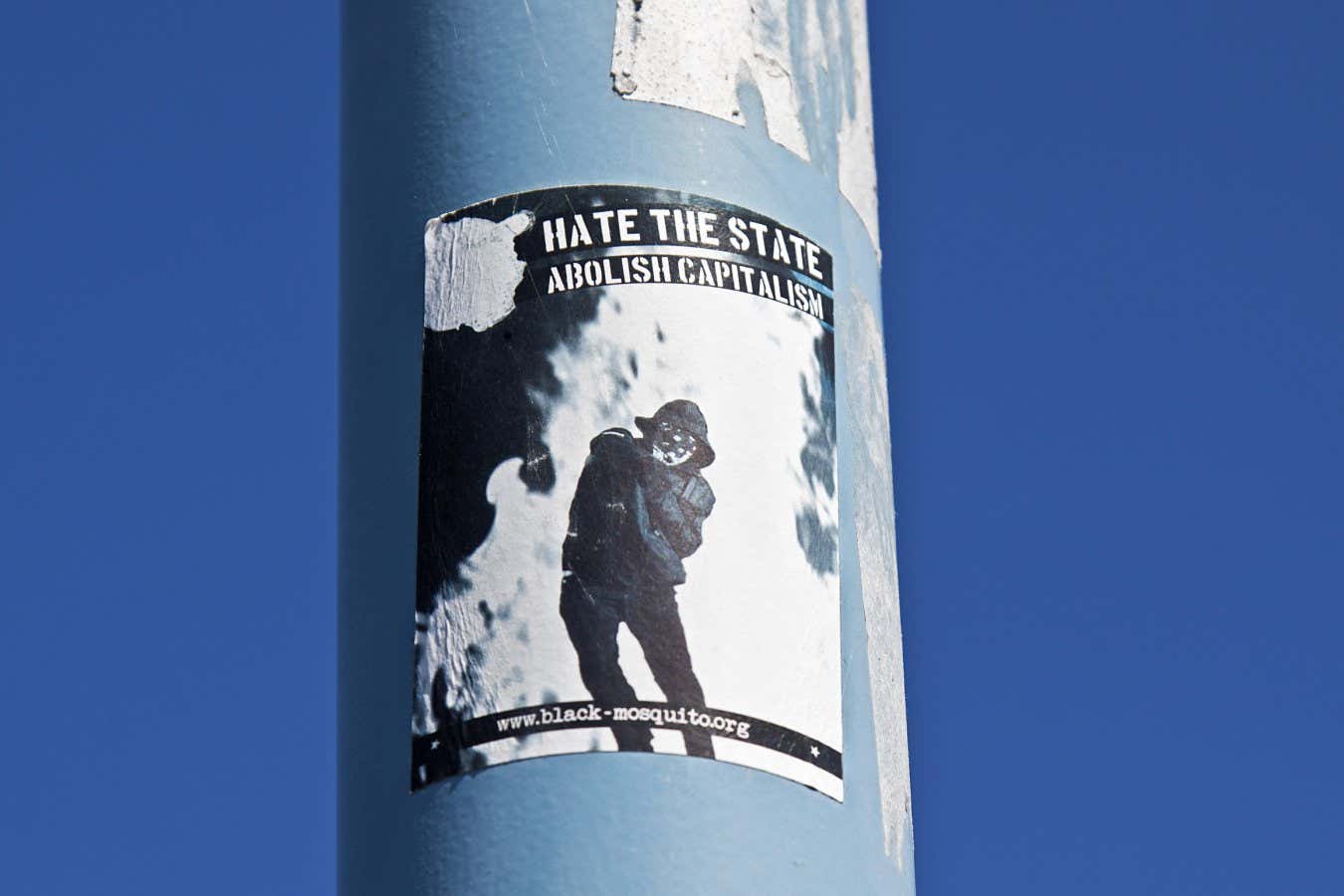
If human nature were entirely cooperative then state control wouldn’t be required to prevent freeloading
Zoonar GmbH/Alamy
I agree that we aren’t naturally egalitarian. In fact, I am not convinced that human societies were ever egalitarian. As anthropologists point out, even living hunter-gatherers have some brutal practices, such as infanticide. But, for me, the explanation for our current unequal circumstances lies not in our ancestors having selected against aggression, but in how the elimination of despotic alpha males allowed other, arguably more insidious people to succeed.
Once humanity was free of the strong grip of strict dominance hierarchies led by alpha males, success in social groups would have become more about skilful manoeuvring within communities. This led to the rise of a particular kind of social intelligence called Machiavellian intelligence, which entails the cunning manipulation of others. In the language of evolutionary biology, we have a cooperation dilemma: there are situations where it is in our interest to work with others, and there are situations where it is not. And, as anyone who has watched an episode of The Traitors will be aware, the need to pull together and the need to betray can come into conflict. As a result, overt rivalry was superseded by what I call “invisible rivalry” – the ability to hide selfish, competitive or exploitative intentions while maintaining the appearance of a cooperative nature. In other words, we evolved to compete in a cooperative world.
The social brain
Support for this idea comes from the size of the human brain. All primates have large brains relative to their body size, and ours is exceptionally big. The social brain hypothesis suggests that these large brains evolved to help individuals manage their unusually complex social systems. Of course, cooperation is part of this, but it can’t be the whole story. Consider ants, which, in terms of numbers and pervasiveness, are probably the most successful group of species on Earth. They are eusocial, which means they cooperate so fully that they seem to act as a single organism. Yet their brains are tiny, and everything they need to work together is programmed within them genetically. So, you don’t necessarily need a big brain to cooperate – but you do need one to compete strategically. Indeed, research suggests that social competition is what best explains the evolution of our enormous brain compared with the big brains of other primates.
To paraphrase Aristotle, we are political animals – not merely social ones. We strategise within our societies to maximise our success, whether that is defined in terms of money, power, mating success, hunting prowess or any of the other qualities associated with prestige around the world. To do so effectively, we evolved to not just be smart enough to cooperate, but to cooperate selectively – and to betray others when it suits us, or even just when we can get away with it.
Studies by economists and psychologists illustrate this. For example, in one set of experiments, participants were paired in a cooperation game in which one person was given $10 and the choice to share it with the other (or not). A lot of research shows that in these circumstances, people generally give some money to their partner, often splitting the pot equally, even when there is no obvious punishment for betraying them. But this time, the researchers gave some participants another option: they could take less money and leave the game without their partner ever knowing that they had been involved in a cooperation game. About one-third of participants took this option. It was as if they were happy to pay to have their betrayal left unknown.
Experiments like this tell us a lot about the human psyche. In social interactions, we often need to be able to predict what others around us are going to do – to learn where to place trust effectively, to win trust when we need it and to hide betrayals of trust on our own part. These abilities require empathy, emotion, language and, perhaps, as some of my colleagues argue, consciousness. Yet those same abilities, and that same intelligence, have a dangerous downside. Our evolved proclivity for maximising resources leads us to exploit those around us – and some people are so effective at deception that they risk damaging their societies. Modern, extreme inequality is an example of this process in action. So too are past political upheavals leading to degradation of the rule of law – and sometimes the fall of civilisations. The Roman Republic, for example, collapsed because of a tremendous internal struggle for power, culminating in Julius Caesar’s Machiavellian machinations, eventually leading to autocracy.

Religion is one institution that societies use to promote cooperation
Adam Guz/Getty Images Poland/Getty Images
So, our dual cooperative-competitive nature means that we face an enemy within that may bring down society. And this is where the analogy with cancer arises. Humanity’s long history of living with the disease means we have evolved biological mechanisms to reduce the risk it poses. Many reactions at the cellular level, including attacks by immune cells and programmed cell death, evolved to help our bodies fight off cancers, as well as other, external threats to our survival. It is this stalwart immune system that explains why, although mutations occur all the time and we are frequently exposed to viruses and bacteria, these often don’t lead to symptoms or illness. Similarly, the threats to our social groups posed by the evolution of invisible rivalry led us to develop practices, behaviours and institutions to maximise cooperation and thwart our Machiavellian tendencies. In my new book, Invisible Rivals: How we evolved to compete in a cooperative world, I call this our cultural immune system.
Religion is one institution that can function in this way. Religious teaching can promote cooperation among everyone who practises it – and this is one possible reason that the Golden Rule, often summed up as “treat others as you would like to be treated”, is found independently in scriptures across the world. People who believe these scriptures – who internalise them, as anthropologists say – are more likely to help fellow members of their group.
Everywhere anthropologists look, they find other practices and institutions that bolster cooperation at the local level. In cultures that rely on fishing, there are strong norms against over-fishing, which would deplete the stock for everyone. Where people are dependent on hunting, there are strict rules about how meat is shared and who gets credit for a kill. The Maasai people of Kenya and Tanzania have a relationship framework called osotua, rooted in need-based sharing partnerships and relying on mutual help in hard times. For example, if someone needs cattle because theirs have all died, another member of the group will help, not because they get anything directly in return, but simply because their neighbour’s needs are greater at that time. This creates a special bond – osotua translates as “umbilical cord” – and treachery is rare because the bond is seen as sacred.
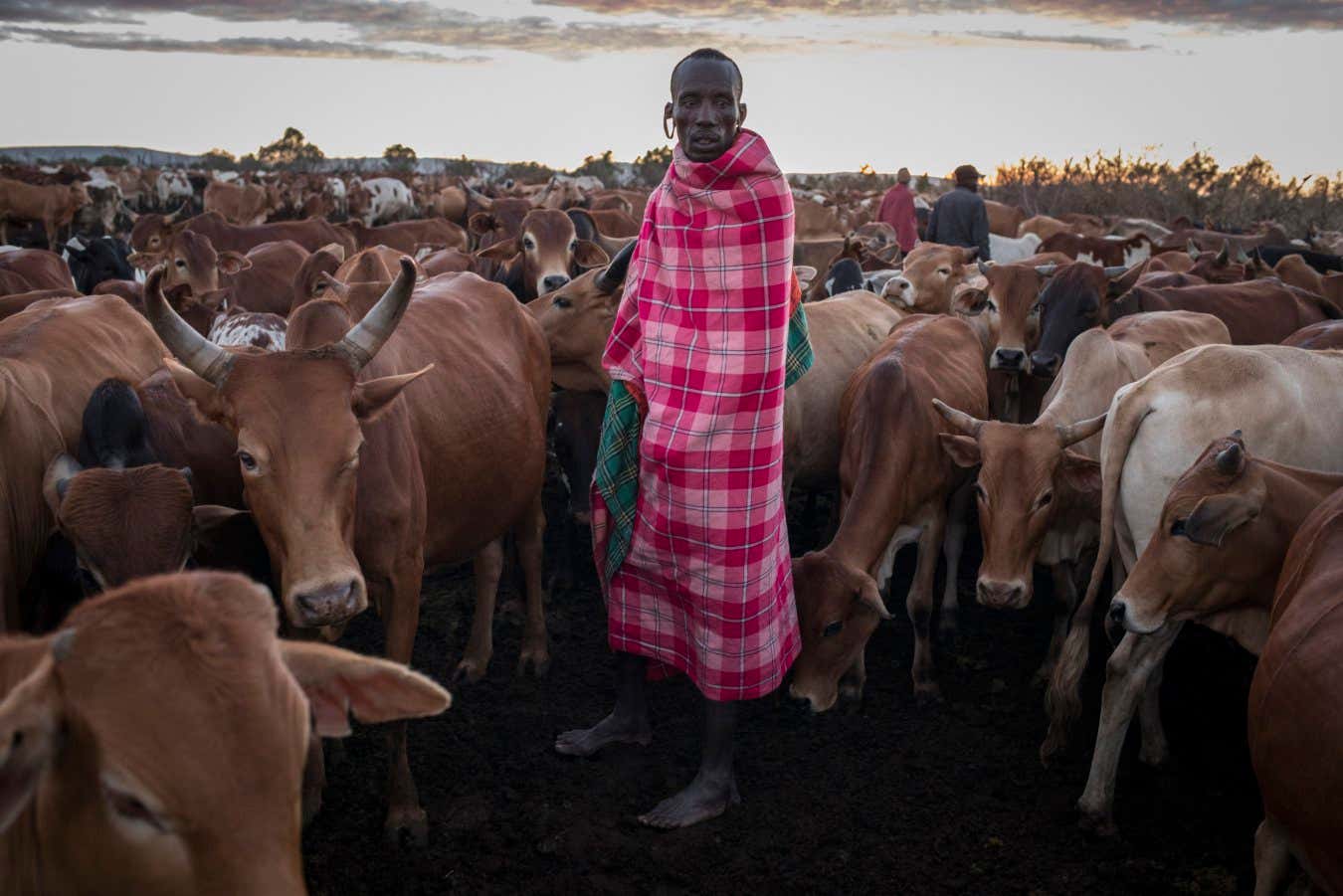
The Maasai people have a system called osotua whereby they give cattle to others in need
Siegfried Modola/Getty Images
Across the world, social norms that guide behaviours have evolved, and they have been refined over thousands of years of trial and error through cultural evolution. However, just as cancers find ways to evade our immune systems, so some individuals use their Machiavellian intelligence to subvert the group’s social norms for their own benefit. This is trickier to do in small-scale societies where people all know each other, making rule-breakers easier to detect and punish. But as societies grew over the past 10,000 years, so did opportunities to act selfishly. Agricultural networks, cities and, finally, nation states made deception much easier to pull off, because it is easy to cheat more people without getting caught in a group where it is impossible to know everyone personally.
Taming our Machiavellian nature
It is this lethal combination of opportunity and invisible rivalry that makes the question of whether humans are cooperative or competitive so relevant today. To fight the enemy within society, we need to understand that both traits are in our nature, and that we evolved to apply whichever suits us best. Thinking that we are either one or the other leaves us vulnerable to facile arguments about how we should structure society. If we are purely selfish, it follows that society should focus on heavy policing and punishment of freeloaders, including those in power. But believing that we are intrinsically altruistic is equally detrimental because it risks ignoring the threat posed by rampant self-interest.
Suppressing humanity’s Machiavellian side is certainly harder in large-scale societies. But there are basic ways that we can boost the cultural immune system, much like how we can improve our biological immune systems through healthy lifestyles and vaccination. The key, I believe, is to learn more about the social norms that small-scale societies have evolved to help them thrive and stave off opportunistic cheaters and then use this knowledge to create policies that promote cooperation at a higher level. For example, within our own communities, we can look to cultures that promote systems like need-based transfers and others that have found ways to share resources more equitably.
But this isn’t going to happen until we first recognise the problem that invisible rivalry poses. In my view, the best way to do that is through education. We are all part of the cultural immune system. If we understand our evolutionary heritage, we will be alert to the danger that freeloaders pose to society and place our trust more discerningly – much as the body’s defence system learns to recognise the agents associated with cancers and other diseases to deal with them. Crucially, we also need to recognise that cooperation is best for everyone in the long term.
A small proportion of people at the most competitive end of the spectrum will always try to game society. We must work together to stay one step ahead of humanity’s opportunistic nature. Without beliefs, norms and a proper understanding of human nature, we are at the mercy of our selfish biological heritage. Evolution has made us this way, but we can learn to overcome it.
Topics:
- psychology/
- human evolution
Source link : https://www.newscientist.com/article/2486089-evolution-has-made-humans-both-machiavellian-and-born-socialists/?utm_campaign=RSS%7CNSNS&utm_source=NSNS&utm_medium=RSS&utm_content=home
Author :
Publish date : 2025-07-09 16:00:00
Copyright for syndicated content belongs to the linked Source.

